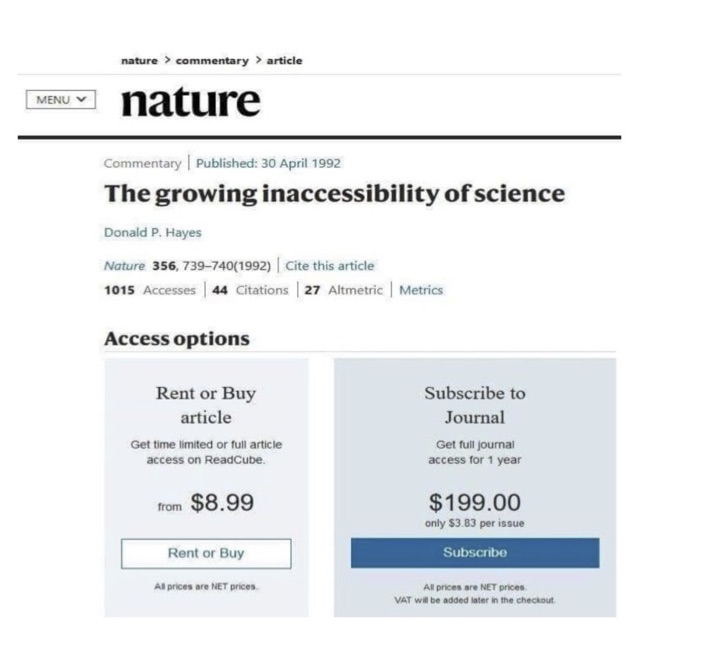Politics, Science, COVID-19: Where Does It All Intersect?
Author(s):
Winny Wang
Jason Jang

The current COVID-19 crisis underscores the need for effective communication and advocacy efforts by the scientific community. The devastating spread of the SARS-CoV-2 virus was followed by an unprecedented social distancing campaign. As a result, Google’s report of Canada showed a decrease in mobility trends in public places such as transit stations (-67 %), retail & recreation (-63 %), and grocery & pharmacy (-45 %) by April 5th [1]. This campaign seems to be working: the number of new COVID-19 cases is on a downward trend since its peak at 1,554 cases on April 2nd [2]. While the pandemic is far from over, the preliminary success of the social distancing campaign demonstrates how science, together with politics, can lead to social good.
Public (Dis)Trust in Science
The past relationship between science and the public has been complicated. There are portions of the public that reject scientific evidence, resulting in grave consequences, such as the measles outbreak in 2019 fueled by the anti-vaccine movement. Public distrust of scientific evidence shapes politics: despite the scientific consensus on climate change, the public debate remained around its dismissal. As a result, elected policy-makers have been slow to answer to the urgent call for action. Recently in the U.S., many citizens held protests against government-mandated lockdowns despite the large number of COVID-19 cases [3]. The public calling for scientifically-ill-advised decisions may prove to be deadly.
Interestingly, while hesitant to accept the scientific evidence, the public nevertheless has confidence in science itself. While many believe scientists to be biased and elitist, nine out of ten Canadians trust them and wish to learn more about science [4].
However, science is failing to fulfill the public’s desire for knowledge. For an ordinary individual without a subscription or an institutional affiliation, many journals remain inaccessible. Moreover, the difficult scientific language comprehensible is only to selected experts in the field. Lastly, with the vast literature that contradicts itself many times during its development, science does not easily grant a sense of grounded consensus to a truth. In obtaining the scientifically-sound truth, one requires 1) easy access to the scientific literature, 2) the knowledge to process the complex information, 3) rigorous research skills and vast efforts to gather consensus from numerous scientific results. This is a tall order for ordinary individuals, and scientific truth remains largely inaccessible. The gap between the desire and the inaccessibility of knowledge is inadequately fulfilled by the mass media. The uninformed public, disconnected from the present sea of scientific evidence, is easily manipulated by misinformation leading to devastating political consequences.

Caption: Written in 1992, “The growing inaccessibility of science” investigated how science became increasingly difficult for non-experts to understand [5]. Now a free article on Nature, it would have cost $8.99 USD to read about the inaccessibility of science. Ironic, isn’t it?
Science’s Place in Society
On April 2nd, Canadian Institutes of Health Research (CIHR) canceled the Spring 2020 grant competition as a result of the COVID-19 pandemic [6]. The result was an uproar from academics on Twitter, with many fearing the potential obstruction of groundbreaking research. Many criticized the lack of transparency and sufficient consultation with researchers in the decision-making process, protesting that it reflects Canada’s lack of focus on scientific research. This announcement comes as the Government of Canada invests $54 million to support 96 COVID-19 research projects [7]. During a critical time for science, the government’s contradictory decisions undermine Canada’s commitment to foundational scientific research.
In a recent article published by Nature, the continuity of future funding in Canada is called into question [8]. According to Jim Woodgett, Koffler Director of Research at the Lunenfeld- Tanenbaum Research Institute in Toronto, CIHR was the only grant agency that cancelled a competition in progress. Many criticized the actions of CIHR, noting that the U.S. National Institutes for Health switched to an online platform within a week; CIHR’s lack of ability questions its capacity to support remote IT solutions.
Perhaps Canada will follow France’s investment of €5 billion in a research fund over the next 10 years to bolster science. President Macron said, “the COVID-19 crisis reminds us of the vital nature of scientific research and the need to invest massively for the long term”, while Frédérique Vidal, Minister of Research and Innovation, stated that the investment is, “an unprecedented effort to support the scientific community and its essential work” [9].
Science influences politics, and politics influence science. Governments must invest in the advancement of scientific knowledge, build relationships with the scientific community, and reach an understanding of the role of science in every-day life. The scientific community must find ways to actively engage with the political environment. Media facilitates the flow of information to the public; scientists must use the media as a platform to explain crucial findings in simple terms and actively use scientific knowledge for political advocacy. Many should consider participating directly in politics themselves. While science is not partisan, it is easily corrupted in politics: its survival depends on the collaboration between the public, the scientists, and the governments from all stripes.
References:
1. Google. COVID-19 Community Mobility Report April 5, 2020
https://www.gstatic.com/covid19/mobility/2020-04-05_CA_Mobility_Report_en.pdf
2. CBC News. [Internet]. Tracking the Coronavirus.
https://newsinteractives.cbc.ca/coronavirustracker/
3. Behrmann S. Protests draw thousands over state stay-at-home orders during coronavirus pandemic. USA Today [Internet].2020 April 15 [cited April 17]. Available from:
https://www.usatoday.com/story/news/politics/2020/04/15/coronavirus-multiple-states-see- protests-over-stay-home-rules/5142499002/
4. Weber B. Canadians’ trust in science falling, poll suggests. CBC News [Internet]. 2019 Sep 23 [cited April 16]. Available from
https://www.cbc.ca/news/technology/science-survey- 1.5291291
5. Hayes DP. The growing inacessibility of science. Nature [Internet]. 1992 Apr 30 [cited 2020 Apr 15]; 356:739-740. Available from
https://www.nature.com/articles/356739a0
6. Cancelling the Spring 2020 Project Grant competition. Canadian Institutes of Health Research. 2020 Apr 2 [cited 2020 Apr 16]. Available from https://cihr- irsc.gc.ca/e/51927.html
7. Government of Canada funds 49 additional COVID-19 research projects. Details of
the funded projects.
https://www.canada.ca/en/institutes-health-research/news/2020/03/government-of-canada-funds-49-additional-covid-19-research-projects-details-of-the-funded-projects.html
8. Webster P. How is biomedical research funding faring during the COVID-19 lockdown? Nature Medicine [Internet]. 2020 Apr 16 [cited 2020 Apr 16]. Available from:
https://www.nature.com/articles/d41591-020-00010-4
9. Kelly E. France reaches for research bazooka, adding over €5B over 10 years to fight COVID-19 and future epidemics. Science Business [Internet]. 2020 Mar 20 [cited 2020 Apr 160].
Available from: https://sciencebusiness.net/news/france-reaches-research-bazooka- adding-over-eu5b-over-10-years-fight-covid-19-and-future
More on the Author(s)
Winny Wang
Western University
BSc Student
Jason Jang
Western University
BMSc Student

